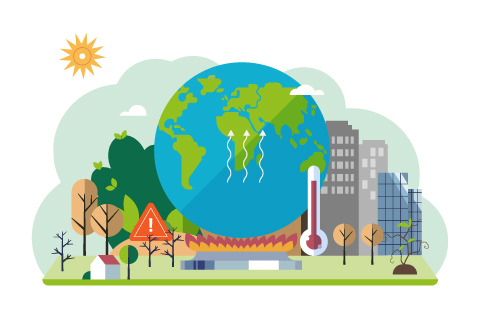We are increasingly seeing the impact of climate change in the here and now. Putting aside the underwhelming British weather, this July was the hottest globally on record, and we saw the toll of global warming in the form of wildfires across Europe and Canada and the extreme floods in China. It feels that all parts of the world are either under water or on fire!
This has inevitably caused an increase in service crises for some travel and tourism operators. Service professionals have had to deal with the fallout of mass evacuations, airport closures, late cancellations and aborted wedding plans that were years in the making. Though customers are the main ones to suffer here – and from factors well outside of the control of tour operators – we shouldn’t forget the impact on those empathetic service staff trying their best to mitigate damage in challenging circumstances with understandably distraught customers.
The tourism industry isn’t the only to suffer. Extreme weather is causing significant challenges for large parts of our infrastructure, with trainlines buckling under the heat, refrigeration failing in supermarkets, and of course, water scarcity. Extreme weather can also destroy crop yields, causing long-term supply chain challenges stopping customers from buying essential fresh food. Apologies for making us all feel very miserable, but the frequency of these events is only going to increase.
In all these cases, an organisation’s service strategy is integral to employing effective crisis management. A well-prepared service strategy, well executed by a brilliant customer service team that respond rapidly and effectively to the issues customers are facing, can avoid a further escalation of problems for the organisation. In addition, a proactive response will undoubtedly help build stronger brand loyalty and have a greater impact on the long-term brand value of an organisation.
For staff on the ground during a crisis, support from leaders makes a huge difference. Speaking to our members in the tourism sector recently, I’ve heard how small but genuine efforts by the leadership team can go a long way to ensure that customer teams are able to best respond. When leaders demonstrate they care about their staff and lead from the front through appropriate acknowledgment of the pressurised environment, effective management and the right wellbeing support – this in turn will help to grow the right internal service culture, and at the same time, its customer loyalty.
Having the contingency plans, structures, and resources in place to face these crises head on, they will see the PR and customer satisfaction benefits.
Unexpected extreme situations are far more likely now due to climate change, European conflict and the growing threat of cyber-attacks. If a business can prove itself to be well-prepared and show a track record of supporting its customers when said unforeseen issues do occur, it can secure long-term stability and loyalty.
The long-term planning shouldn’t stop there. Climate change will result in changes to the services firms provide. With the world changing around us, we all need to consider how we can adjust our service propositions to a changing environment. For those that do, there may even be new opportunities to establish the service ethos in a stronger and more impactful way.



